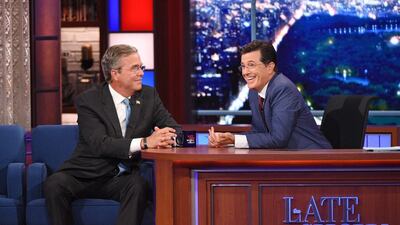When times are bad, people go to the movies. That, at any rate, is what they did during the Great Depression of the 1930s. Those were banner years for movie studios. Audiences filled cinemas across the globe, desperate for a few hours relief from the outside world and its relentless bad news.
The Hollywood movies of the 1930s were mostly sunny and upbeat fare – musicals, romantic comedies, the merry lives of the super-rich – because when you’re surrounded by poverty and want, it’s nice to lose yourself for a few hours in glamorous Manhattan skyscrapers and elaborately costumed dance numbers. Show business, in other words, is at its most successful when it delivers relief to the audience.
In the earliest days of the movie business, in fact, motion pictures delivered literal relief: cinemas were among the few places that had air conditioning in the summer and plentiful warmth in the winter. Sometimes people went to the movies just to be more comfortable. It didn’t matter what was playing on the screen.
People, as a legendary movie producer once told me, don’t go to the cinema to see a depiction of reality. They have reality all around them, all the time. And it isn’t much fun. Movies are an escape.
It’s worth noting this rule – especially in the United States, especially during these fractious political times – because where movie and television audiences are going may tell us something about what people are feeling deep down, on a subconscious level that they may not even be able to articulate.
The television ratings of Fox News, for instance, the most reliably pro-Trump news outfit in the United States, have encountered a rough patch. Where once they seemed to be on a permanent upwards drift, for the past few months they’ve slipped lower. At the same time, the audience ratings of Fox News competitors have begun to lift. Fox News remains far and away the leader in the category, but the trend is clear. Likewise the web traffic statistics for breitbart.com, a famously enthusiastic cheerleader for the Trump Administration. Its traffic has plummeted over the past few weeks.
I’m not suggesting that Fox News fans or breitbart.com readers are changing their minds, or that they’re abandoning ship. Rather, their behaviour is consistent for people who are just tired of hearing bad news. Back in 2008, when the worldwide financial system was on the edge of collapse and investment portfolios were losing value every hour, the ratings for financial news channels took a dive. People knew the markets were heading south, but they didn’t want to hear about it. So they turned away from the news and towards other things. Hollywood’s business model, after all, is about monetising the impulse to bury one’s head in the sand.
So in this time of audience churn, what’s doing well? On television, the biggest hits are escapist soap opera dramas, home remodelling shows, and the relentlessly cheerful sitcom, The Big Bang Theory. In the cinema, superhero pictures, sequels to superhero pictures, and reboots of past hits. This is what those in the financial markets call a “flight to safety” – audiences are exhausted from months and months of political turbulence and are turning to soothingly familiar entertainment. Trump supporters are covering their eyes and hoping that it all somehow turns around.
At least some of them are, anyway. The newly-energised and emboldened political opposition to Donald Trump, though, is jumping into the fray. They’re relishing the soaring unpopularity of the new president.
For years, the late-night chat show host Jimmy Fallon was the top performer in a competitive field. His audience was much larger than any of his two competitors. Fallon’s act was a classic “nice guy” routine. His jokes were scrupulously apolitical, his questions to his guests were affably down-the-middle. In his now-famous interview with then-candidate Donald Trump, he joked around, tossed the future president’s hair, and avoided asking any challenging questions. At the same time, his nearest competitor, Stephen Colbert, was stepping up his political commentary, taking sides and delivering a blast of withering insults directed at Candidate, and then later President, Trump.
Clever television industry analysts – like me – thought this was a suicidal choice. Brilliant and experienced television veterans – like me – predicted that Colbert would soon be off the air. Audiences, we said to anyone who would listen, will always prefer the breezy and amiable Jimmy Fallon for their late-night entertainment. What Colbert is delivering, we said (OK, OK, I said) was the equivalent of homework. And nobody wants homework, least of all at 11:30 PM.
For the past few weeks, though, it’s been Colbert who wins the ratings battle. His numbers have risen just as Jimmy Fallon’s have fallen. The part of the audience that wants to engage in politics has found a perfect home with Colbert. The part that doesn’t is running away – turning off the television, watching something utterly non-political – and waiting it out, just like cinema audiences did 80 years ago, in the air-conditioned dark.
Rob Long is a writer and producer in Los Angeles
On Twitter: @rcbl

